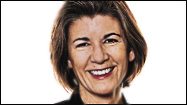A few days ago, I received a very interesting inquiry from Jo Giese. You may have heard of Jo, who is a noted author and journalist. Her remarkable and moving caregiving story on This American Life made an impression on many people. 
Jo raised a point that I must admit stopped me in my tracks – one of those head-smacking moments where you ask yourself: “Why didn’t I think of that?” She wrote:
I saw you interviewed on TV and got your book. I’m enjoying it and look forward to giving it to my 96-year-old mother, who could very easily have been one of your experts.
However, I was disappointed in one huge omission: the discussion of sexuality and aging. If folks are nervous about aging and death, they are also often nervous about the potential loss of sexuality as they age. However, studies show that as long as people have a partner they can continue to have a satisfactory, if different from when they were younger, sexual life.
Jo is of course absolutely right. Research evidence summarized by the American Psychological Association demonstrates that sex by no means “stops at 60,” and that many elders remain sexually interested and engaged throughout their lives. As the National Institute on Aging puts it: “Many people want and need to be close to others as they grow older. This includes the desire to continue an active, satisfying sex life as they grow older.”
So: Why doesn’t the issue show up in the Legacy Project interviews, and in my book, 30 Lessons for Living, based on the 1200 elders in the project? I’ve been pondering that question since receiving Jo’s message, and maybe you readers can help me.
In doing the interviews and writing the book, I was committed to letting the elders drive the process. In our initial pilot studies, we asked people in an open-ended way for their lessons. Then we took those themes, and used them to guide the surveys we conducted.
And sex – as part of a lesson for living or advice for the young – just didn’t come up. It didn’t make the top 30 list of lessons to pass on to future generations. In fact, it didn’t make any list at all. When it came up, it was often downgraded in importance. For example, when Stanley, 84, was considering a second marriage, he told me that he wanted someone who was “touchy – someone who isn’t afraid to be touched and to touch back. I’m not talking about sex; I’m talking about affection.”
When I asked: “What advice would you give for finding a mate and staying married” only a handful of people mentioned sexual compatibility or a good sex life, and typically it was at the end of the list that included sharing similar values, liking one another’s family, communicating, and not “keeping score” in the relationship.
So why no sex? The topic is striking in its absence.
One hypothesis might be that the topic was too sensitive, but I don’t think so. The elders were certainly honest about everything else! They talked about severe marital problems, betrayal, and divorce. The also opened up about their financial situations, about child-rearing problems, and about death (considered to be another highly taboo topic). I would add that one of our interviewers was a woman in her late sixties, with whom older women would presumably feel comfortable – and they didn’t mention sexuality in their life lessons to her, either.
A second possibility is that sexuality in this generation is more “taken for granted” and treated less as a problem to be solved than it is in contemporary culture.
Or third, people may simply have felt that this was not a topic on which they had concrete advice to share. It may not have seemed to be an issue on which they could advise the young. Or at their stage of life, the benefits of companionship and friendship in marriage are more salient, and so they highlighted these themes.
Readers: I need your help. Any thoughts on why, among so many topics, the hundreds of elders we interviewed did not include sexuality in their advice for future generations? Please weigh in! Take a look at the comments below – do you agree?



